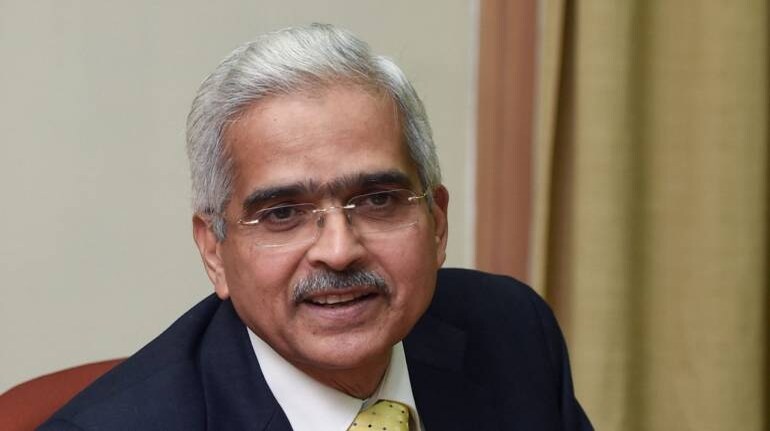



Reserve Bank of India governor Shaktikanta Das has been reappointed for another three-year tenure well before his first term was due to end in December. In the past, the government has not always been prompt in appointing or reappointing key executives, but this time, it’s done the right thing. The reappointment of Das will also make his six-year tenure the second-longest after B Rama Rau, who served for 7.5 years (1949-57).
We are once again seeing excitement around the political economy of appointments and exits of central bankers in a space that has, of late, been dominated by pandemic-related developments.
The first case takes us to Germany, where Jens Weidmann was appointed as president of Bundesbank in 2011 for an eight-year term and reappointed in 2019. However, Weidmann suddenly resigned on October 20, citing personal reasons.
Initially, it was felt that Weidmann quit because of constant differences with European Central Bank (ECB) policies. We need a bit of background here.
Bundesbank was established in 1957 and quickly earned a global reputation as an inflation-fighting central bank. When the ECB was set up, Bundesbank became its benchmark. However, their views diverged significantly after the 2008 crisis. The ECB wanted to ease monetary policy by cutting policy rates and buying bonds, which Bundesbank officials opposed. This led to the resignation of two German central bankers – Bundesbank president Alex Weber (which led to Weidmann’s appointment) and Jurgen Stark from the ECB.
However, the ECB under Mario Draghi and then Christine Lagarde continued to buy bonds, which Weidmann persistently criticised. Germany’s inflation also reached record levels recently. Thus, it was thought that Weidmann’s resignation was due to these continuing differences with the ECB.
However, there is possibly another side to the story. Before his Bundesbank tenure, Weidmann served as head of the department for economic and fiscal policy at the Federal Chancellor’s Office from 2006 to 2011. It’s interesting to note that Weidmann served as both head of economic policy and as Bundesbank president under Chancellor Angela Merkel. Shortly after Merkel stepped down from Chancellorship, Weidmann resigned.
Could the developments have been mere coincidence? It appears highly unlikely, given that differences with the ECB have existed for 10 years and the European bank had not done anything exceptional lately to trigger Weidmann’s resignation.
In fact, as argued by David Marsh and Pierre Ortlib, Weidmann resigned following Merkel’s exit, further complicating the German political outlook. If this is true, how is it that central bank officials, who have for long taken pride in their independence, decide whether to stay in office or leave depending on the politician in power?
The “political cycle” is not limited to Germany. Another central bank that prides itself on independence is in the US. Jerome H Powell is the chair of the Board of Governors of the Federal Reserve System. Powell also serves as chairman of the Federal Open Market Committee, the principal monetary policymaking body.
Powell was appointed by Donald Trump on February 5, 2018, for a four-year term amid much euphoria. However, Powell soon lost the trust of Trump, who openly criticised his policies on Twitter. Powell is currently working under the Democratic government and it is not clear whether his tenure will be extended.
Powell is not an exception to such situations. Ben Bernanke (Republican) and Janet Yellen (Democrat) have also worked with governments led by the other party.
Coming back to the reappointment of Das. He got the job after Urjit Patel resigned in 2018, citing personal reasons. In a way, Patel’s resignation was as surprising as that of Weidmann because the RBI board had met only a few days earlier and it appeared that differences with the government, if any, had been settled. Even before Patel, previous governors made headlines over their differences with the government.
Das was appointed when relations between the government and the RBI had reached a new low. Three years into his tenure, though, any differences between the government and the RBI have all but disappeared.
Some might say this is because Das served as finance secretary under the same government and was able to iron the differences. Others might argue that D Subbarao, too, was finance secretary under the same government that appointed him as RBI governor, but this did not stop the friction between the two sides.
While a separate analysis is needed to evaluate Das’ tenure, one of the major reasons behind his reappointment is the way he handled relations with the government.
It’s interesting how politics and central bank appointments have played out in the three countries. In Germany, Weidmann seems to have quit due to the change of government. In the US, it’s not clear whether Powell will keep his job. In India, Das keeps his job because he could navigate the tricky waters between the government and RBI.
The Indian polity is also as fragmented as in the US, but that has not created problems for central bank appointments so far. The space of the political economy of central bank appointments and exits is getting interesting again.
Discover the latest Business News, Sensex, and Nifty updates. Obtain Personal Finance insights, tax queries, and expert opinions on Moneycontrol or download the Moneycontrol App to stay updated!
Find the best of Al News in one place, specially curated for you every weekend.
Stay on top of the latest tech trends and biggest startup news.